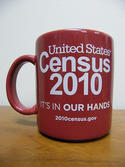The San Francisco area’s recently adopted Plan Bay Area may set a new standard for urban planning excess. Plan Bay Area, which covers nearly all of the San Francisco, San Jose, Santa Rosa, Vallejo and Napa metropolitan areas, was recently adopted by the Metropolitan Transportation Commission (MTC) and the Association of Bay Area Governments (ABAG). read more »
Demographics
America Hanging in There Better Than Rivals
To paraphrase the great polemicist Thomas Paine, these are times that try the souls of optimists. The country is shuffling through a very weak recovery, and public opinion remains distinctly negative, with nearly half of Americans saying China has already leapfrogged us and nearly 60 percent convinced the country is headed in the wrong direction. Belief in the political leadership of both parties stands at record lows, not surprisingly, since we are experiencing what may be remembered as the worst period of presidential leadership, under both parties, since the pre-Civil War days of Franklin Pierce and James Buchanan. read more »
Children and Cities
Central cities are not likely to regain their former population. However, some of them may have reached an important inflection point—population growth has returned to at least some of the largest (and longest-declining) cities. For example, New York City’s population has increased by more than one million since 1990, after declining by about one million between 1950 and 1980. Over the past decade, nine of the ten largest (and 17 of the 20 largest) cities in the United States have gained population. read more »
Mobility for the Poor: Car-Sharing, Car Loans, and the Limits of Public Transit
Public transit systems intend to enhance local economies by linking people to their occupations. This presents problems for many low-income families dependent on transit for commuting. With rising prices at the gas pump, much hope has been placed on an influx of investment into public transit to help low-income households. But does public transit really help the poor? read more »
Here’s a Way to Flood the US Housing Market with One Trillion Dollars
Members of the millennial generation – born between 1982 and 2003 – carry a student debt burden of close to one trillion dollars. This is the group that includes many just entering the stage in life when people tend to settle down and start families. Even though Millennials are marrying later than previous generations, they would still be the prime market for sales of single family starter homes, if only they could afford them. read more »
Singapore Seeks Its Home
August 9th is National Day in Singapore, and it is accompanied by both public and private celebrations. From my family’s flat in the public housing estate of Hougang, we can hear the roar of jet planes over our heads as they make their way to the National Day Parade grounds for a fly-past and appear shortly before our eyes on the television screen. read more »
Major Metropolitan Areas in Europe
Eurostat, the statistical agency of the European Commission (European Union) now designates metropolitan areas (Note) for the European Union (EU) and the European Three Trade Association (EFTA). The EU has 28 members, having just added Croatia, while the EFTA has 4 members. read more »
Is the Census Bureau On Track For Another Estimating Fiasco?
When the 2010 Census results were released, a number of big cities had populations that were very off from what would have been expected based on the Census Bureau’s previous annual estimates of the population – sometimes grossly so. Some of these were related to cities that had challenged the estimates and had adjustments made in their favor, such as Cincinnati and St. Louis. Given that the Census Bureau seems to have approved every challenge, bogus challenges were all but encouraged. Still, there were significant variances in cities that didn’t challenge the Census, such as Chicago and Phoenix. read more »
How Can We Be So Dense? Anti-Sprawl Policies Threaten America's Future
Among university professors, government planners and mainstream pundits there is little doubt that the best city is the densest one. This notion is also supported by a wide number of politically connected developers, who see in the cramming of Americans into ever smaller spaces an opportunity for vast, often taxpayer-subsidized, profiteering. read more »
In the Spotlight: Higher Ed Degree Output by Field and Metro
It might stem from the dot-com crash, the increased popularity of certifications and onsite employer training, or various other reasons. Regardless, the key finding from EMSI and CareerBuilder’s analysis of higher education degree output over the last decade is still eye-opening: Computer and IT degrees completed in the U.S. have declined 11% since 2003. read more »





















